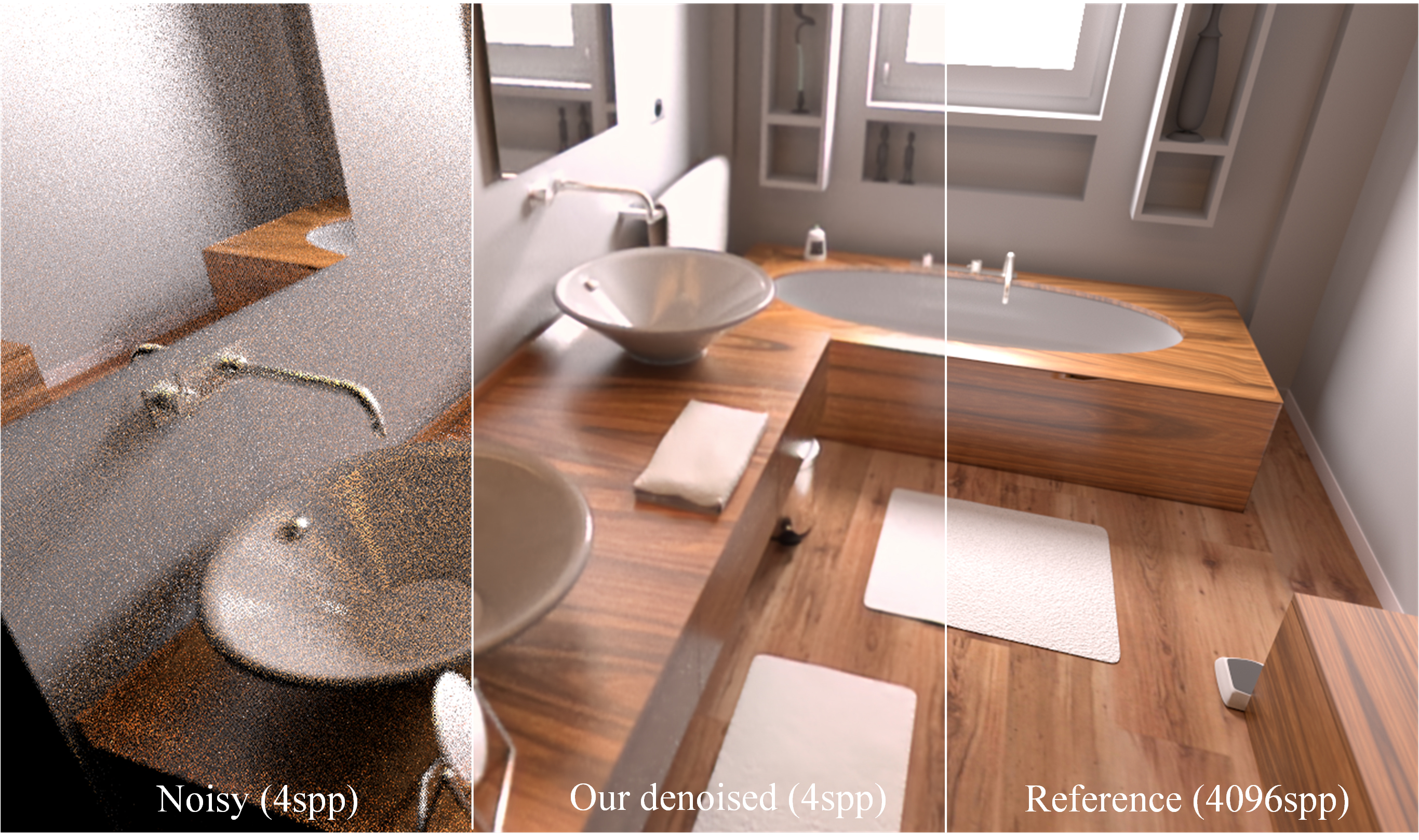
Monte Carlo (MC) rendering has attracted unprecedented attention for denoising and creating high-quality images, while deep learning-based MC denoisers also aim to improve rendering quality. Recently, there has been rapid development in using MC rendering synthesis along with deep learning, and significant progress has been reported on denoising using models trained on convolutional neural networks. Such usage and recent novel ideas have contributed to generating denoising rendering results, and sufficient details for image reconstruction from sparse MC samples or basic geometric auxiliary features. In this paper, we present a fast method for denoising Monte Carlo Rendering with a few samples per pixel. The basic idea is to use Dual Deep AutoEncoder Networks (DDAE) with a skip connection, for end-to-end inference from noisy rendered images to reconstructed realistic images. The first autoencoder accepts the noisy image together with the auxiliary buffers and outputs a sampling map. The second autoencoder accepts the noisy image together with the sampling map and outputs the final image. Consequently, our approach is less time-consuming and keeps the high-frequency details features lossless. In addition, we compare our DDAE results against state-of-the-art results by using the mean squared error (MSE) values with the peak signal-to-noise ratio (PSNR) values, and our approach reported better performance effects.
Ahmed Mustafa Taha Alzbier, Chunyi Chen, Zhongye Shen, Ripei Zhang, "Fast Dual Deep Convolutional Autoencoder Network for Denoising Monte Carlo Rendering" in Journal of Imaging Science and Technology, 2023, pp 030501-1 - 030501-12, https://doi.org/10.2352/J.ImagingSci.Technol.2023.67.3.030501
 Find this author on Google Scholar
Find this author on Google Scholar Find this author on PubMed
Find this author on PubMed

